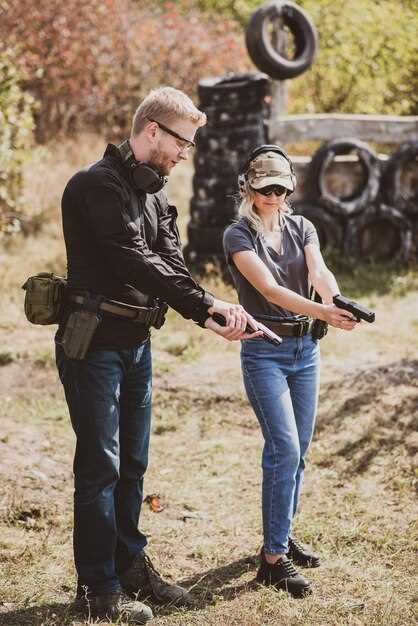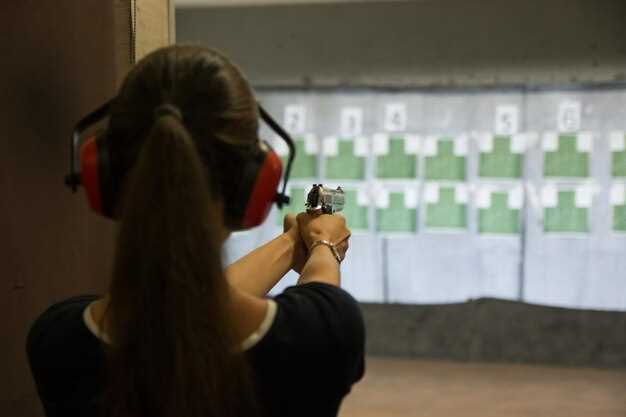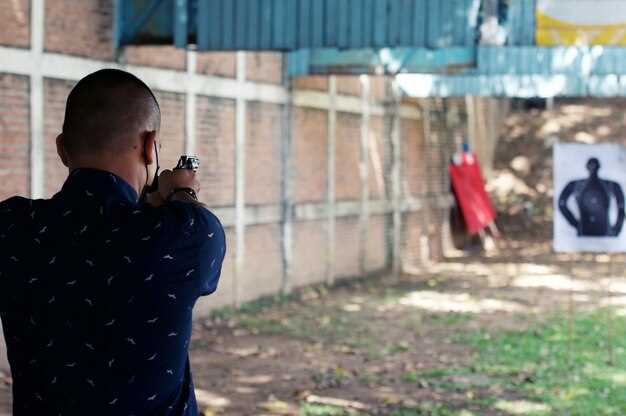
Joining a local shooting club – what to expect

Becoming a member of a local shooting club can be an exciting and enriching experience for both novice and experienced shooters. The membership process often varies from one club to another, but generally, it provides access to essential resources, training, and a community of like-minded enthusiasts. Understanding what to expect when joining a shooting club is crucial for making the most of your time and investment.
Upon joining a shooting club, you can anticipate a structured environment that promotes safety, skill development, and camaraderie. Most clubs will require new members to complete an orientation or safety course designed to familiarize you with club rules, shooting protocols, and firearm handling practices. This initial step is vital for ensuring that all members uphold the highest standards of safety on the range.
In addition to safety training, becoming part of a shooting club means gaining access to various facilities and events tailored to enhance your shooting skills. Many clubs offer regular practice sessions, competitions, and workshops led by experienced instructors. These opportunities not only help you improve your marksmanship but also foster connections with fellow members who share your passion for shooting.
Joining a Local Shooting Club: What to Expect

Joining a local shooting club can be an exciting opportunity for those interested in firearms, recreation, and community engagement. Upon your first visit, expect a warm welcome from experienced members who are eager to share their knowledge and passion for shooting sports.
Initial Orientation: Most clubs will provide an orientation session for new members. This is an essential step, as it covers safety protocols, club rules, and the use of facilities. Familiarizing yourself with these guidelines is crucial for a safe environment.
During the orientation, you’ll likely discuss the various types of shooting activities the club offers, such as target shooting, practical shooting, or clay pigeon shooting. Each discipline may have its specific requirements and equipment, which will be explained in detail.
Equipment and Gear: While some clubs offer rental firearms, having your own equipment is recommended for regular participation. A shooting club commonly requires members to have personal protective gear, including ear protection and shooting glasses. You might also want to invest in a quality firearm that suits your interests and skill level.
Community and Mentorship: Joining a shooting club means becoming part of a community. Expect opportunities to meet fellow enthusiasts, participate in group practices, and engage in friendly competitions. Many clubs encourage mentorship, allowing you to learn from experienced shooters, which can significantly improve your skills.
Competitions and Events: Most shooting clubs organize events and competitions throughout the year. Participating in these can enhance your experience, challenging your skills and connecting you with others. Look forward to a range of activities, from casual matches to more serious tournaments.
Ongoing Learning: The shooting sports sector is constantly evolving, and clubs often provide access to educational resources. Expect workshops, safety courses, and guest speakers to broaden your understanding of shooting techniques, firearms maintenance, and responsible ownership.
In summary, joining a local shooting club introduces you to a supportive community, promotes skill development, and ensures a safe environment for enjoying shooting sports. Embrace this new journey with enthusiasm and a dedication to learning, and you will find a rewarding experience awaits you.
Understanding Membership Requirements and Fees
Joining a local shooting club usually comes with specific membership requirements that vary from one club to another. First and foremost, most clubs require prospective members to be of a certain age, typically at least 18 years old. In addition, members may need to provide proof of identity and residency, as well as complete any necessary background checks to ensure safety and compliance with local laws.
Moreover, many shooting clubs mandate that new members attend an orientation session. This session often covers essential safety protocols, shooting etiquette, and the proper use of equipment. Participating in this orientation not only helps familiarize you with club policies but also fosters a sense of community among members.
When it comes to fees, clubs generally have an initial enrollment fee that covers administrative costs and provides access to club facilities. Annual membership dues are also common, which may be charged monthly or in a lump sum. These fees help maintain the shooting range, fund events, and support safety initiatives. Additional costs may include purchasing ammunition, range time for specific events, and special training sessions.
It’s essential to review all financial obligations before committing to membership. Some clubs offer tiered membership plans, including family memberships or reduced rates for students and military personnel. Understanding these financial aspects will aid in making an informed decision and ensuring that joining a shooting club aligns with your budget and shooting interests.
Navigating Safety Protocols and Training Sessions

When joining a local shooting club, understanding safety protocols is crucial for all members. Clubs prioritize creating a safe environment, which begins with comprehensive guidelines that every member must follow. Before participating in any shooting activities, new members typically undergo an orientation session. This session highlights the importance of safety gear, proper handling of firearms, and basic shooting etiquette.
Each club may have specific rules regarding the handling and storage of firearms. Members are expected to familiarize themselves with these regulations and adhere strictly to them. For instance, members should always treat every firearm as if it were loaded, keep the muzzle pointed in a safe direction, and keep their finger off the trigger until ready to shoot. These fundamental rules form the backbone of a secure shooting environment.
Training sessions are often offered as part of the membership benefits. These sessions can range from beginner classes focused on firearm safety and shooting fundamentals to advanced courses that cover tactical shooting and competitive techniques. Members are encouraged to participate actively in these trainings to enhance their skills and ensure that they are comfortable and confident in their abilities.
In addition to safety training, clubs typically provide opportunities for ongoing education. Workshops on topics such as first aid, situational awareness, and tactical decision-making may be available. Engaging in these activities not only improves individual proficiency but also fosters camaraderie among members, reinforcing the club’s commitment to safety and responsibility.
Ultimately, navigating safety protocols and training sessions within the club is an essential aspect of being a responsible member. Adhering to established safety measures, actively participating in training, and cultivating a culture of safety ensures that everyone has an enjoyable and secure shooting experience.
Gaining Access to Facilities and Equipment
Joining a local shooting club often comes with the benefit of access to specialized facilities and equipment that may not be available to individual shooters. Understanding how to utilize these resources effectively is crucial for enhancing your shooting skills and overall experience.
Here are some aspects to consider regarding facilities and equipment in a shooting club:
- Range Access: Most clubs offer various shooting ranges, including indoor and outdoor options. Familiarize yourself with the specific rules and operating hours of the ranges.
- Target Systems: Clubs typically provide advanced target systems that can track progress and help improve accuracy. Make sure to learn how to use these systems professionally.
- Equipment Rental: Many clubs have rental services for firearms and other shooting gear, providing an opportunity to try different models before deciding on a purchase. Check the availability and rental fees.
- Maintenance Facilities: Access to cleaning and maintenance stations is essential for keeping firearms in optimal condition. Utilize these facilities to ensure your equipment performs reliably.
Additionally, engaging with club members can provide insights on the best practices regarding the usage of facilities and equipment:
- Ask for Assistance: Don’t hesitate to seek guidance from experienced members on how to operate equipment or navigate the facilities.
- Participate in Club Events: Joining organized shooting events can offer hands-on experience with various types of equipment and help you become familiar with club resources.
- Stay Informed: Regularly check club communications for updates on new equipment, facility improvements, or changes in access policies.
By actively engaging with the facilities and equipment available at your local shooting club, you can significantly enhance your shooting capabilities and enjoy a richer club experience.




